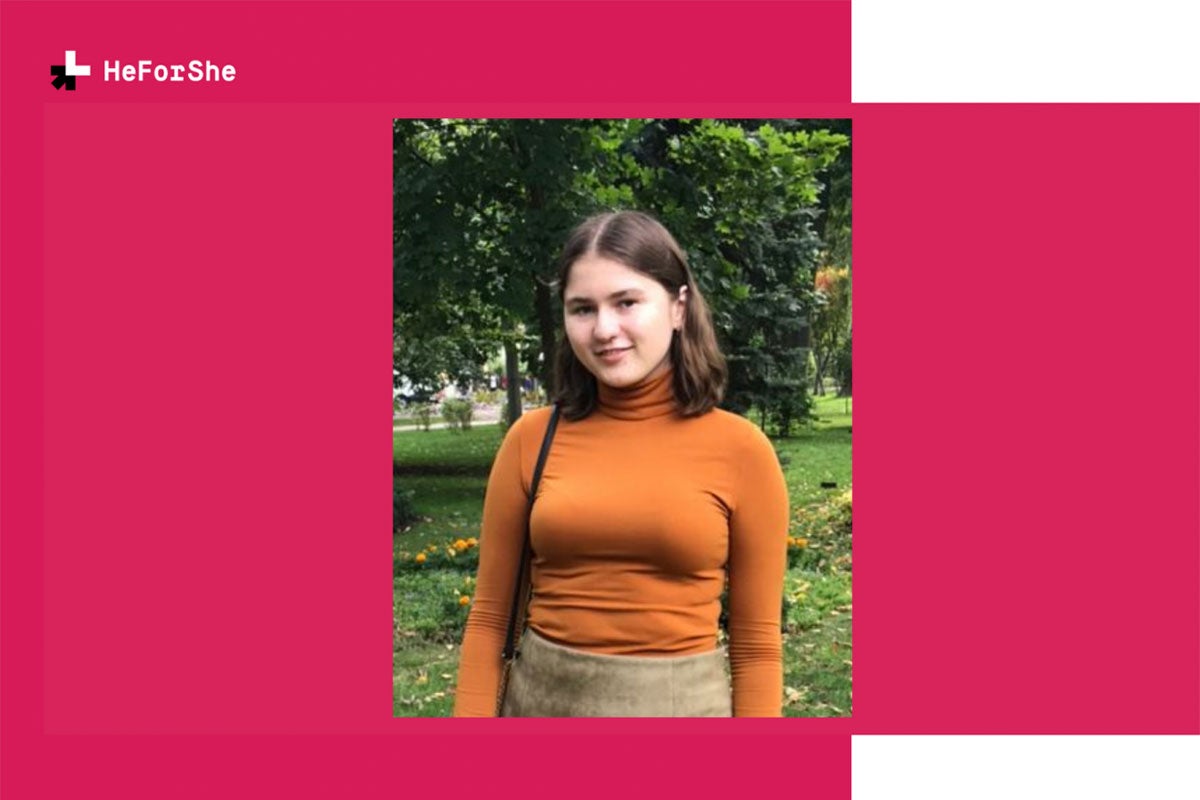In the words of Daria Sholomitska: "It is particularly essential for universities to provide a policy based on gender equality"
Date:

Daria Sholomitska is a 2nd-year student of the National University of Kyiv-Mohyla Academy. Today, more than half the world’s population is under 30 years of age. Students and youth are the new generation of leaders and changemakers, and it is critically important to understand their priorities as we shape the gender equality movement to change the world. Created by UN Women, the HeForShe solidarity movement in Ukraine has launched the HeForShe University Tour. This is a chance to listen and learn from students about the issues and opportunities they see when it comes to achieving gender equality.
![]()
I’m glad to admit that I have the opportunity to build my career during a time when human rights and gender equality are becoming a top priority worldwide. In my country changes for the better in attitude to these issues can be clearly seen.
Before going to university, I wasn’t very interested in the problem of gender-based discrimination. It is not a topic of discussion in most (I daresay almost all) Ukrainian schools. However, at my university, Kyiv-Mohyla, I got involved in the active community of young people who showed me what it means to truly care about fair conditions for all, promote equality and to act on different levels.
Compared to men, women in Ukraine still face a lot of unequal treatment when it comes to employment, maternity leave, and payment for work. Not to mention the fact that telling a woman what is suitable for her and what she has to do is still a common and toxic practice. In my opinion, we should all contribute to gender equality where we can – be it in the workplace, study group or in an organization. As a student and potential employee, I think that it is particularly essential for universities to provide a policy based on gender equality and to empower women in building successful professional and academic careers.
Last year I became a member of the International relations students’ club (IRSC). Our organization holds gender equality as one of its core principles. The club has more than 40 members, over half of whom are female. An organizational council of IRSC is represented by five female students, one of whom is the club president.
The IRSC is about building a conscious community, where principles of equality, tolerance, mutual respect and concern are a part of club's regulations, its internal constitution, and not just declared values. It all pertains to both personal and academic aspects. The main achievement of IRSC is its active participation in the struggle for a high-quality education, in which academic integrity is the fundamental feature of the whole process. In this context, members of the IRSC have initiated and supported changes in teaching staff due to plagiarism.
The club holds regular meetings. Participants are invited to deliver mini lectures to share their experience or to introduce others to various topics. For instance, the subjects of recent discussions have been the importance of mental well-being and the dangers of burnout. Every member of IRSC is free to express his or her opinion, however there are boundaries. Sexism, xenophobia, racism and other dimensions of discrimination are considered a taboo. Freedom of expression is necessary, whereas any form of discrimination is unacceptable.
At my university, I would like HeForShe to help change attitudes towards human rights and gender inequality and to explain how each of us can contribute to addressing them effectively. That is, with the help of public lectures or workshops, to improve the understanding that discrimination is not something distant, but something that can be seen anywhere. Awareness of the importance and urgency of the problem is the first step to solving it”.